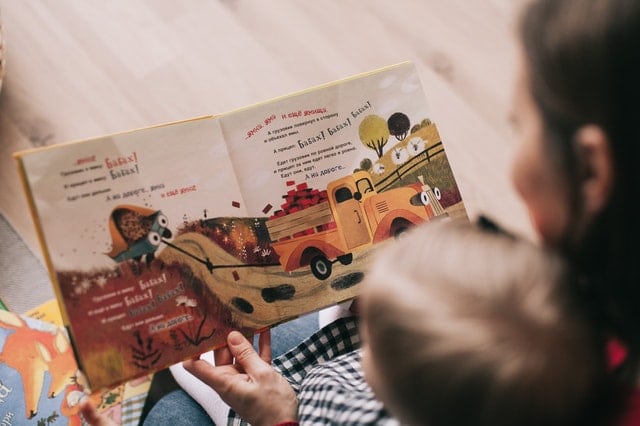In this digital age, there are countless devices to distract us. But there are plenty of reasons why you should still make time for reading, especially with your children. Trust us – the time and focus it takes to read really is worth the effort.
Reading a story out loud and engaging your child in the conversation is known as active reading.
Reading Builds on Storytelling

Active listening builds on our unique need to tell stories. A narrative, the linear telling of a sequence of events, invites the storyteller to use language to create images. This process is known as representations of both the events within the story and the feelings, thoughts, memories and intentions of the characters from those events.
This type of reading helps your child build their imagination and strengthen their linguistic skills.
Reading Helps Us Remember
Research shows that narrative form can improve memory. The brain is constantly trying to make sense of input, and hearing and telling stories is how the brain examines events. The brain processes what is happening and changes its behavior based on that.
A narrative is more than just a description of a series of events; it reveals the meaning of events and the ways we make sense of life.
Reading Strengthens Parent-Child Relationships
How we connect with our kids is the best predictor of how well they will make healthy attachments later in life. The presence of a parent’s autobiographical narrative, or how they have come to make sense of their lives and relate it in the story of where they have been and who they are, is a key factor in your child’s security. When parents show up for their kids and offer them secure relationships, the child is able to make sense of them. This is known as mental time travel, how someone can connect the past with the present and imagine the future.
Children with a prospective capacity are able to view what can and should happen next and have more flexibility and well-developed self-awareness and self-determination.
Reading Builds Conversation Abilities
Reading to your child helps them build their linguistic, cognitive and conversational abilities, which help them participate in a co-constructive narrative. This simply means children are able to be part of an ongoing conversation.
If a child can articulate what is going on in their emotional life, they are more likely to be able to soothe their own distress, make sense of their feelings and regulate their emotions.
Read Aloud Program
Our speech-language pathologists and audiologists came together to create our Read Aloud Program to support your child’s development through reading.
We offer resources that explain communication skills parents should expect to see in their children and exercises to aid in child development. Our activities support your child’s growth are broken down from birth to age five.
Our speech-language pathologists and audiologists are here to help. Contact Evergreen Speech & Hearing, Inc. today.